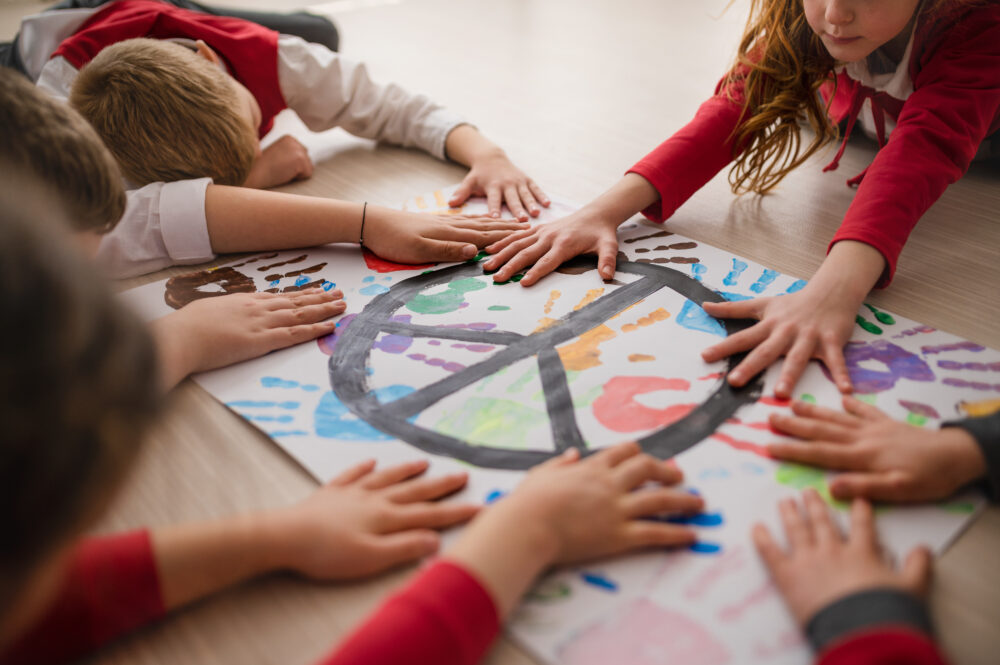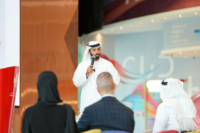As we observe the International Day of Education, principals from schools across the GCC discuss the role of education in promoting peace and the learning approaches they have employed to make a lasting impact
Dubai, Jan 24, 2024: UNESCO adopted a recommendation in November 2023 that lays out how education should be used to bring about lasting peace. The recommendation acknowledges that peace is built not just through international negotiations but also in classrooms, on sports fields, through arts and science education, and more.
The recommendation is an attempt to outline what exactly needs to change in approaches to education to construct the pathway for lasting peace.
As we celebrate the sixth International Day of Education today, we throw the spotlight on this year’s theme – ‘Learning for lasting peace’ We ask principals and headmasters from the GCC to share the learning approaches they have adopted at their schools, which are empowering students with the essential knowledge, values, attitudes and skills to make them the agents of peace in their communities.

Oliver Nicolas Bromley Hall, Head Master, Brighton College Al Ain
Learning is about every aspect of a child’s experience and development within our College. It is fundamental for children to acquire a body of knowledge and array of academic skills so that they might ask the right questions and find creative solutions to the challenges that they face. Students lead meetings and assemblies, setting agendas and asking searching questions. In all that we do, we strive to foster the values of kindness, curiosity and confidence. Curiosity, when cultivated, allows students to approach situations without prejudice, eager to understand the world and the diversity of people within it. Confidence empowers young people to try new things and speak to new people, often outside of their ‘comfort zone’. Finally, and most importantly, kindness encompasses empathy, compassion, gratitude and altruism, among others. It is through kindness in all that we do that we empower our students to be agents of peace so that the communities they go on to serve will thrive through their leadership.
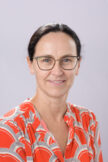
Oona Carlin, Executive Principal, Cheltenham Muscat
As I reflect on being a school leader on the International Day of Education, I think about all the benefits International Education offers to our students. The greatest advantage of studying in an international school is the multicultural and diverse learning environment. Students in international schools learn about other cultures and, because of this close working relationship with other students, everyone develops the ability to cooperate with people from different backgrounds, customs and cultural norms. They learn to be tolerant of others and develop mutual respect and empathy. Learning in an international community helps to shape character by harnessing an attitude to succeed in today’s complex society through sound judgment, compassion and integrity.
Graduates from an international school leave more prepared to find their place in the modern world, where the ability to cooperate and develop communication skills and practical knowledge are highly valued.

Nicole Haynes, Principal & CEO, GEMS Westminster School – Ras Al Khaimah
We place a strong emphasis on inclusivity and diversity in the learning environment, embracing different cultural perspectives and backgrounds. This commitment to a diverse and inclusive environment ensures that students not only appreciate but also celebrate differences. Regular community service initiatives a sense of social responsibility, nurturing a deep-seated commitment to making positive contributions to society.
We employ a multifaceted approach to empower students as agents of peace within their communities. The curriculum seamlessly integrates traditional academic subjects with experiential learning opportunities, focusing on critical thinking, empathy and collaboration. Through project-based learning, students are immersed in real-world problem-solving scenarios, fostering practical skills and a deep understanding of global issues. Values and ethics are interwoven into every aspect of teaching, promoting empathy, respect and cultural understanding.
Furthermore, the school prioritises the cultivation of strong communication skills, equipping students with the ability to express themselves effectively and resolve conflicts peacefully. By fostering these multifaceted learning approaches, the aim is to graduate students who not only excel academically but also embody the principles of peace and contribute meaningfully to their communities.
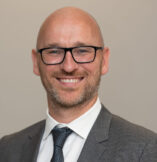
Nick Hart, Principal, Horizon English School
Our unconditional focus is on well-being and happiness. When children feel that they belong, when they have great relationships with their peers and with the adults in school, and when they feel successful at school each day, they are more likely to demonstrate agency in matters of importance to them. This is at the heart of an excellent EYFS and primary education; children learn to be agents of peace first by treating those around them extremely well. We also teach children to recognise the rights and needs of others in order to develop moral agency. Through innovative units of work on global matters of importance, we highlight to children the decisions that we all must make as global citizens.

Mike Seaton, Principal, King’s College Doha
We are conscious that the attitudes students develop at school will remain with them throughout their adult lives, and so we work hard to foster an inclusive culture in which our students appreciate their responsibility towards others.
Upon admission to the school, each child is required to sign our Pledge of Kindness, which is proudly emblazoned on the walls of the school and serves as a living monument to our values. Make a Difference Days and charitable fundraisers regularly take centre stage, and students are encouraged to use a letterbox in school to acknowledge acts of kindness from peers that they witness in school.
It is, however, vital for our older students to understand that becoming an agent of peace in adulthood goes beyond making a simple commitment to treat others kindly in one’s day-to-day interactions, and involves developing a nuanced understanding of global affairs and the machinations of world governments. With this in mind, we continue to actively contribute to the Model United Nations initiative, sending teams of delegates to participate in UN simulations both within and beyond Qatar.

Rashmi Nandkeolyar, Principal & Director, Delhi Private School Dubai
At our school, we employ a holistic and experiential learning approach to empower students to become agents of peace in their communities. Our curriculum is designed to foster a deep understanding of diverse perspectives, cultures and global issues, encouraging students to develop empathy and open-mindedness. We integrate subjects that promote critical thinking, conflict resolution and effective communication, emphasising the importance of dialogue and understanding in resolving disputes.
To values such as tolerance, respect and social responsibility, our school actively engages students in community service projects such as beach clean-up, tree plantation and others. Moreover, we organise Model United Nations conferences to make students aware of global problems, fostering a sense of responsibility beyond their immediate surroundings.
In addition, students take part in educating ancillary staff, promoting a culture of inclusivity and mutual understanding. Through such hands-on experiences, students develop a sense of civic duty and practical application of knowledge, prioritising essential life skills such as emotional intelligence, leadership and teamwork. The approach also enables them to navigate complex social situations with a constructive and peace-oriented mindset.

Siobhan Dickerson, Vice Principal, GEMS Winchester Private School – Fujairah
We believe in an inclusive approach to education that is founded in human values, empowering students to become agents of positive change in the world. To achieve this goal, we make use of the following approaches to education.
Through High Performance Learning (HPL), we encourage students to ask questions, explore, and critically appraise information. This approach helps them make connections with their own world and promotes independent thinking, preparing them for their place in the future workforce. Through group work, students learn empathy, conflict resolution and communication skills, enabling them to build positive relationships and contribute to a peaceful environment.
Through thematic learning, students engage in hands-on projects that address real-world problems including sustainability, the rise of AI and the food cycle. By working collaboratively, children develop problem-solving skills, compassion and a sense of responsibility towards creating solutions that will make the world a better place for all.
Through our Social and Moral Education programme, we expose students to diverse cultures and perspectives, nurturing an appreciation for others and promoting intercultural understanding. We actively involve students in community outreach work to help them understand the challenges faced by others and enhance respect for their local environment.
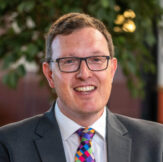
Nicholas Rickford, Principal, Sunmarke School
The cultivation of ‘agents of peace’—students and educators who champion peace, harmony and understanding—is central to our ethos. In the Early Years Foundation Stage, this journey begins by fostering a child-centered environment where imagination and creativity are ignited through ‘Quality First Teaching’. This approach extends beyond conventional classrooms, with outdoor settings encouraging discovery, exploration and empathy, which are foundational in nurturing young peace advocates.
In the Primary section, the curriculum, integrating the British National Curriculum with a Positive Education ethos, empowers students as agents of peace. They engage in real-world applications, such as environmental campaigns and the creation of a sustainable cookbook, blending academic learning with social values. These activities foster a culture of respect, tolerance and empathy among their peers – values that are vital for peace advocacy.
The Sixth Form continues this trajectory, exemplifying collaborative and culturally inclusive approaches. Students participate in activities such as International Day performances, celebrating diversity and fostering understanding. Such initiatives are integral to developing agents of peace, who are committed to creating a safe, inclusive and harmonious school environment.

Wayne Howsen, Principal, The Aquila School
With the varied community of schools, especially in the Middle East, we know that a school cannot be all things to all people, but there are some key values that all schools will want to promote. Our values focus on ensuring that children are safe, happy and learning.
When we talk about learning, in schools we mean improving skills, knowledge and attitudes. Developing relationships is a focus of our work, regardless of age. We want children to be competent and caring learners – and this happens through the formal curriculum of Moral and Social Education, and through the informal curriculum during form time, registration and the way that children are grouped together in activities. In our classrooms, students are regularly given the chance to learn to co-operate, care, share and consider the views of others.
We have a clear school mission that underpins the work of our school on a day-to-day basis and through our weekly assemblies we focus on our six school values of respect, kindness, excellence, empowerment, honesty and cooperation. Regular activities using Jenny Mosely’s circle time model allow children to safely explore real-life events such as dealing with conflict in school and managing friendship issues, which are all part of growing up. By acquiring these skills at an early age and exploring them in the ‘security blanket’ of school, through discussion and practice in group activities, children have the opportunity to develop ways to ensure that they can really become agents of peace in their community.

Terry Senior, Principal, The Hamilton International School
We are committed to fostering a holistic education that empowers students to become agents of peace in their communities. Our learning approaches are designed to cultivate not only academic excellence but also essential values, attitudes and skills.
We employ a student-centred learning model that encourages critical thinking, collaboration, and problem-solving. Through a well-rounded curriculum, we integrate subjects that promote global perspectives, social responsibility and ethical decision-making. Our educators focus on developing empathy, cultural awareness and a sense of responsibility towards building a harmonious society.
Service learning is a cornerstone of our approach, providing students with opportunities to actively engage in community projects. This hands-on experience enables them to apply classroom knowledge to real-world situations, fostering a deep understanding of their role in promoting peace. We regularly celebrate the variety of cultures that make up our school, and our international day, which involves every member of our community, is a key event on our school calendar.
We also emphasise the development of strong communication and conflict resolution skills, preparing students to navigate diverse perspectives and contribute positively to their communities. Our commitment to creating a safe and inclusive learning environment ensures that students feel empowered to express themselves and embrace the values that promote peace and understanding. Through these comprehensive learning approaches, we aim to equip students with the knowledge and skills necessary to be compassionate leaders and ambassadors of peace in their communities.

Adele O’Doherty, Principal, Downe House Riyadh
We employ a holistic learning approach that goes beyond traditional academic subjects. Our curriculum is designed to not only essential knowledge but values, attitudes and skills crucial to the fostering of a peaceful community. We emphasise experiential learning, encouraging students to actively engage with real-world issues and cultivate empathy. This happens, for example, through our Current Affairs and Public Speaking co-curricular activities.
Values such as tolerance, respect and understanding are woven into every aspect of our educational framework. Teaching within the framework of the British curriculum and its dynamic approach, our teachers act as facilitators, guiding students to think critically and encouraging sensitive but open dialogue to understand others’ perspectives. Collaborative projects such as ‘Project Earthlings’, a conservation project we are collaborating on with our alliance schools, are integral to developing teamwork, finding solutions and resolving conflicts.
One important strand of our DNA, built into our curriculum and co-curriculum, is being outward looking, encouraging a focus on matters across the world. Through involvement in the Duke of Edinburgh’s Award scheme, our older students undertake volunteering which builds empathy and helps them consider how to be agents for change.
Furthermore, our school promotes cultural diversity through inclusive events celebrating our community. We strive to create an environment where students appreciate differences and celebrate shared humanity. By nurturing these multifaceted competencies, we aim to empower our students not only as knowledgeable individuals but as active contributors to a harmonious and peaceful community.

